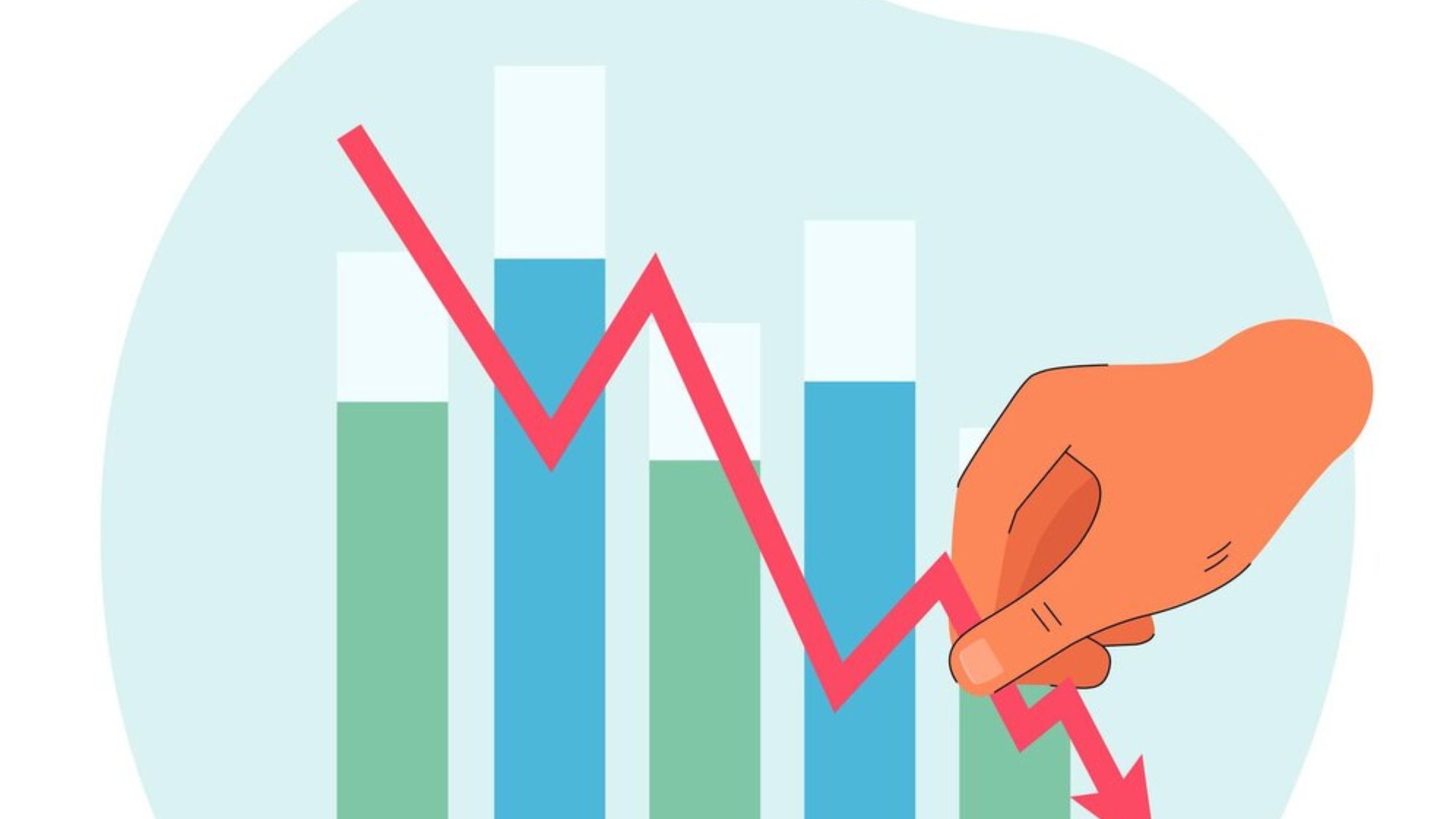The covid situation has brought in unleashed and unpredictable economic uncertainty globally. Naturally, this has brought uncertainty to the public markets. But due to the liquid nature of the CRE, it is much slower to respond to economic shocks like the one going on now. However, the impact is undoubtedly the beginning.
Whether you are a long-term investor or have just started in the industry, you must prepare for a recession like the current one. However, there are specific strategies that one can follow which would be helpful to stay strong during the recession, which will last for several months to years.
Given how unsorted the industry is now, taking measures on time will protect your investment and guarantee you can make the most of the industry opportunities. The guide here will provide clear information about the recession and how you can tackle it to boost your growth.
Recession- What is it?
A recession, if described, is a widespread decline in the overall economic activity and business. You can measure it in multiple ways like reduction in the GDP, increase in the unemployment rate, etc.
The recession affects all industries in different ways. It takes way too long before the market realizes the impact of an economic slowdown. The illiquid nature of real estate means it cannot be sold or purchased as public security, making it safe in recession times.
Thus it will take longer to respond to such situations. There is a possibility it may take months for the impact to be realized. Similarly, it has implications in the industry that can last longer than any other asset class and quickly bounce back.
The CRE prices will almost decline significantly during the recession, so investors can now expect to get more attractive buying opportunities during the recession than during the market when the economy is quite strong.
Building Recession-proof investment
Keeping yourself safe against the recession is one of the critical things you need to do as an investor. It is the strategy that will help keep the investment and funding safe. There are specific ways for CRE investors to create a recession-proof portfolio. This will include.
-
Maximizes yields
As an investor, you must pay extra attention to the yields. When looking for opportunities, it is vital to consider the positive cash flow, rent, and others to determine how a property will perform.
Let’s consider an example where you choose an asset with a 3.5% fixed rate loan and 5% going in cap rate. Herein the positive spread is accretive today, which provides an in-place solid cash flow to the equity holders. Even during the recession, in-place cash flow assures an essential buffer for insulating and preserving the capital.
Now when the same is compared to a development deal, things change. For example, during a recession, the development might be delayed or be at a higher risk due to the unavailability of adequate cash flow.
Let’s consider a development project is six months into the total 18-month construction cycle. During the recession, the cost will increase, and the capital can dry up, so even if the properties are complete, it still needs to be established and leased as there won’t be any existing structure with rent in place.
Thus it will create more downside for the investors. An investor who wants to keep himself protected against the recession might want to focus on the deals with in-place solid yields to endure the possible risk due to an economic downturn.
-
Preserve liquidity
Investors might want to focus on preserving as much liquidity as possible, especially when there is a chance of a recession. This means one needs to stay patient and disciplined regarding new investment opportunities instead of doing the deals just for the sake of doing. This guarantees that the investor has the cash freed up, which can be used for opportunistic deals when a recession happens.
-
Lock in long-term debt
A great strategy to stay protected against term debt, maturity risk, and interest rate during the recession is by locking in long-term debt. The investors who feel that the industry is on the brink of recession might want to consider financing the transactions using the fixed rate that comes with about 7 to 10 years long term.
This would be enough to endure a recession and come out positively without variable the loan maturity. The pandemic has created an interesting situation in which variable-rate loans are more beneficial than fixed-rate loans.
One did not anticipate that the economy would come to a grinding halt in such a manner. However, it also has created unique circumstances during which the federal reserve is flashing the interest rates. Thus it benefits available rates.
A lower interest rate in such a time creates its form of buffer for non-payment of rent. Thus there will be more short-term loans associated with such types of variables, especially those that are short-termed.
The loans can also make sense based on the business plan, investment, and the sponsor behind the acquisition.
-
Consider holding period
Many investors are concerned if there is an ideal holding period to consider during the recession or for building a recession-proof portfolio. But one needs to understand it does not exist in reality. Instead is vital to see that the holding period aligns well with the overarching business strategy.
Also, the investor must see where the industry stands in the economic cycle to determine if the holding period will potentially decrease or increase the risk.
For example, let’s consider an investor who has recently invested with a 5 to 10 years holding period. He might not be altogether concerned about the decision with the recession threat looming on the horizon.
After all, recessions rarely last for years. Therefore a holding period of 5- 10 years will give him plenty of time to implement the business strategy and come out without any extreme loss.
But during the mid of a recession, sponsors can take a step back to manage the downturn while evaluating the environment of the recession. This might include slowing down the capital improvement pace, keeping the assets highly occupied, increasing rent, value-added strategies, etc.
An investment of 5 to 10 holding years is by the end of the term, with a significant risk of recession. The investor might have to worry due to the economic crisis in such a situation.
This is why it is critical to understand one must invest with experienced sponsors with good debt relationships. Such sponsors are the ones who are better at navigating the capital market even when things are not going well in the industry.
Where to invest before a recession?
To keep yourself protected against the fear of recession, one needs to invest in the need-based asset class. This refers to those like senior housing and apartments. They will continue to rise despite the market condition.
For instance, multifamily housing is the place where people will consider living despite all the economic challenges. People attempting to save will choose rentals during the recession, creating demand.
Specifically, investing in class B multifamily properties can be beneficial as they provide more flexibility. In addition, there are some opportunities one can use through value-added strategies for improving income.
However, in case of a market correction, the value ad investments can be stopped to shift the focus on generating positive cash flow. Besides, you also need to know where to invest during the recession. Everyone needs to have a well-planned recession strategy in case the situation arises.
Then, you can closely monitor the changing market conditions and take the right step to endure the recession. It is all about staying patient and disciplined during such a time to face the complications and come out strong.
When one can manage the recession time confidently, they will come out strong and have a better portfolio. But this will require a proper understanding of the industry and continuous research to guarantee you understand things well and have a better chance of succeeding.
Conclusion
The real estate industry is quite unpredictable. Therefore, when the recession strikes, one needs to be prepared for all the situations so that they can make the most of the opportunity.
Specific plans and strategies can take care of in advance, so there is no worry during the recession. However, if you need to understand the process or get investment help, you can consider contacting Private Capital Investors.
They have got professionals for support. They will help you get all the information that will be beneficial to stay strong during the recession phase and come out strong. They are all prepared to take care of your needs and guarantee you have a better hold over your portfolio.





